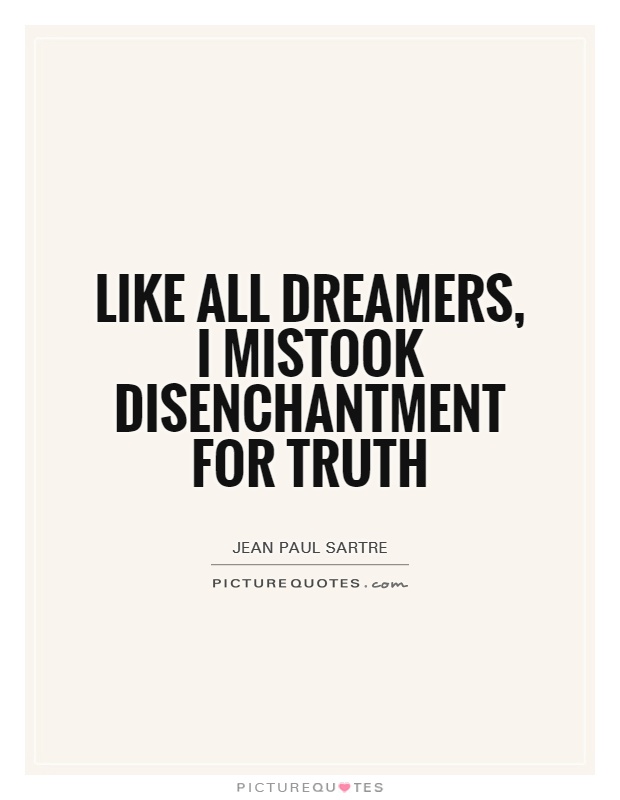Like all dreamers, I mistook disenchantment for truth

Like all dreamers, I mistook disenchantment for truth
Jean-Paul Sartre, the renowned French philosopher and existentialist, is often associated with the idea of disenchantment and the search for truth. His famous quote, "Like all dreamers, I mistook disenchantment for truth," encapsulates his belief that individuals often confuse their disillusionment with reality.Sartre believed that human existence is characterized by a sense of alienation and disillusionment. He argued that individuals are constantly searching for meaning and purpose in a world that is inherently meaningless. This search for truth can lead to feelings of disenchantment and despair, as individuals come to realize the futility of their efforts.
In Sartre's existentialist philosophy, individuals are responsible for creating their own meaning and defining their own existence. This can be a daunting task, as it requires individuals to confront the harsh realities of life and accept the inherent uncertainty and ambiguity of the world. Disenchantment, then, becomes a natural response to this existential crisis, as individuals grapple with the realization that their dreams and illusions may not align with the harsh truths of reality.
However, Sartre also believed that disenchantment can be a catalyst for personal growth and self-discovery. By confronting the harsh realities of life and accepting the limitations of their existence, individuals can begin to create their own meaning and define their own truth. This process of self-discovery is essential for living an authentic and fulfilling life, according to Sartre.












 Friendship Quotes
Friendship Quotes Love Quotes
Love Quotes Life Quotes
Life Quotes Funny Quotes
Funny Quotes Motivational Quotes
Motivational Quotes Inspirational Quotes
Inspirational Quotes